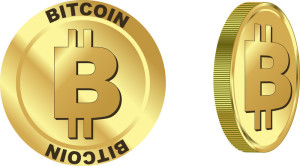Barter and BitCoin Transactions Can Result in Taxable Income and PST and GST/HST Payable
Do you trade goods or services which you would normally sell in the course of your business? Have you started using BitCoins (electronic currency) for transactions?
 If a transaction would have tax implications if money changes hands, it will have the same tax implications if it is a barter or BitCoin transaction. These transactions may result in taxable income or tax-deductible expenses. They may be considered dispositions of capital property, eligible capital property, personal-use property, listed personal property, or inventory, each of which has a different tax treatment.
If a transaction would have tax implications if money changes hands, it will have the same tax implications if it is a barter or BitCoin transaction. These transactions may result in taxable income or tax-deductible expenses. They may be considered dispositions of capital property, eligible capital property, personal-use property, listed personal property, or inventory, each of which has a different tax treatment.A barter transaction occurs when two people or entities agree to trade goods or services without any money changing hands. When this occurs between people dealing with each other at arm’s length, the value of the goods or services is deemed to be the value that would have been obtained for those goods or services in a regular cash transaction.
When a person provides bartered goods or services which would normally be sold by him in the course of his business or profession, the value of those services must be included in income. If the person is a GST registrant, then GST would have to be remitted on the income. The value of the bartered services is included in income when determining if the person has reached the threshold of income where he must become a GST registrant. Provincial sales taxes may also apply.
When a person receives bartered goods or services which would normally be purchased in the course of his business or profession, the value of those services can be claimed as costs to the business. If the person is a GST registrant, then an input tax credit could be claimed, if the provider of the goods or services is a GST registrant.
Example:
|
When a person receives or provides bartered goods which are capital property, personal-use property, eligible capital property, listed personal property or inventory, the value of the goods is deemed to be the value that would have been obtained for those goods or services in a regular cash transaction. The person receiving the goods would use this value as the adjusted cost base of the goods for tax purposes. The person providing the goods would use this value as the proceeds of disposition, in order to calculate the income or capital gain.
When a person buys and sells BitCoins for the purpose of making a profit, this also has tax implications, resulting in either income or capital gains. See IT-479R Transactions in Securities, paragraphs 9 to 32, which discusses how to determine whether the profit is an income gain (100% taxed) or a capital gain (50% taxed).
 Leave a comment
Leave a comment